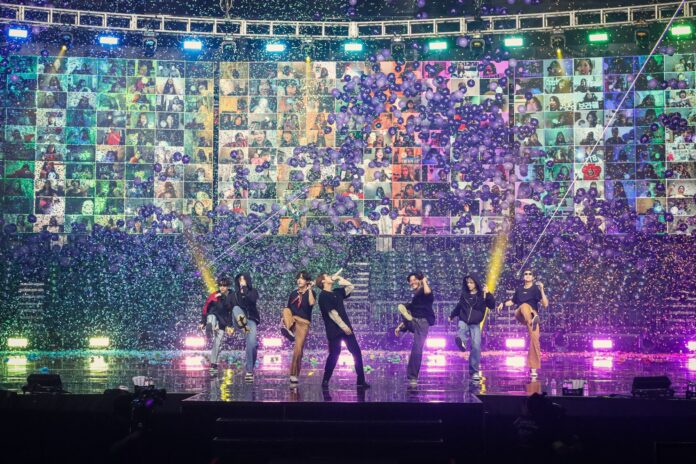Five major entertainment companies in South Korea, including K-pop giants SM Entertainment and HYBE, have reached an agreement with the market’s Fair Trade Commission over alleged subcontracting violations.
The resolution marks the first time a consent resolution system was applied to the manufacturing and service subcontracting sector since the system was introduced in July 2022, the South Korean FTC said in a notice on Tuesday (June 24).
The FTC’s consent resolution system allows companies under investigation to propose voluntary corrective measures instead of facing violations.
The resolutions were finalized with HYBE, SM Entertainment, YG Entertainment, JYP Entertainment and Starship Entertainment after the companies applied for the consent procedure between April and May 2024, with the commission approving the process in December.
It follows an investigation by the FTC, launched in July 2023, which examined whether companies violated subcontracting laws by failing to issue written contracts in advance when outsourcing production of music records, merchandise like light sticks and dolls, video content, and performance services including stage composition, lighting installation and sound equipment operations.
South Korea’s Subcontracting Transaction Fairness Act requires companies to provide written contracts containing statutory information before work begins, the FTC said.
Under the settlement finalized on June 9, each company will contribute KRW 200 million ($147 million) to create a KRW 1 billion ($736m) mutual cooperation fund, instead of paying fines to the government over their violations.
The fund will provide practical assistance to suppliers. Each companies have outlined specific support programs ranging from health checkup subsidies, safety equipment purchases, to educational course vouchers.
HYBE, the agency behind BTS, has allocated KRW 100 million ($73,600) over the next three years to support protective equipment purchases for its suppliers. It has also earmarked another KRW 100 million to provide assistance with purchasing consumables for video production such as memory cards and batteries.
SM Entertainment, home to groups like aespa and NCT, will set aside KRW 50 million ($36,800) for health checkup expenses or holiday gifts for employees of suppliers. It also earmarked KRW 50 million for video editing programs and support for suppliers’ filming equipment.
Before finalizing the agreements with the five K-pop companies, the FTC collected opinions from stakeholders including the Ministry of Culture, Sports and Tourism and Ministry of SMEs and Startups during a 49-day review period from February to March 2025.
Key reforms include provisional contracts that can be converted to formal contracts, establishing an electronic contract system, enhancing in-house contract management system and improving education on subcontracting laws.
The regulatory action comes as the K-pop economy continues to grow at home and overseas. In 2023, the K-pop market achieved overseas sales of KRW 1.24 trillion ($914m), according to data from Statista. Of the total, 47.6% came from overseas performances, while 31% were from overseas album sales.
K-pop companies have pursued aggressive expansion strategies overseas. Less than a month ago, HYBE officially launched a subsidiary in China, the world’s fifth-largest recorded music market. The news follows another report by South Korean news agency Yonhap last month that HYBE is also planning to establish an office in Mumbai, India.
SM Entertainment, meanwhile, set up a Southeast Asian headquarters in Singapore in late 2022. Back in March, the company announced that it would launch a training academy for K-pop hopefuls in the city-state.
Music Business Worldwide


